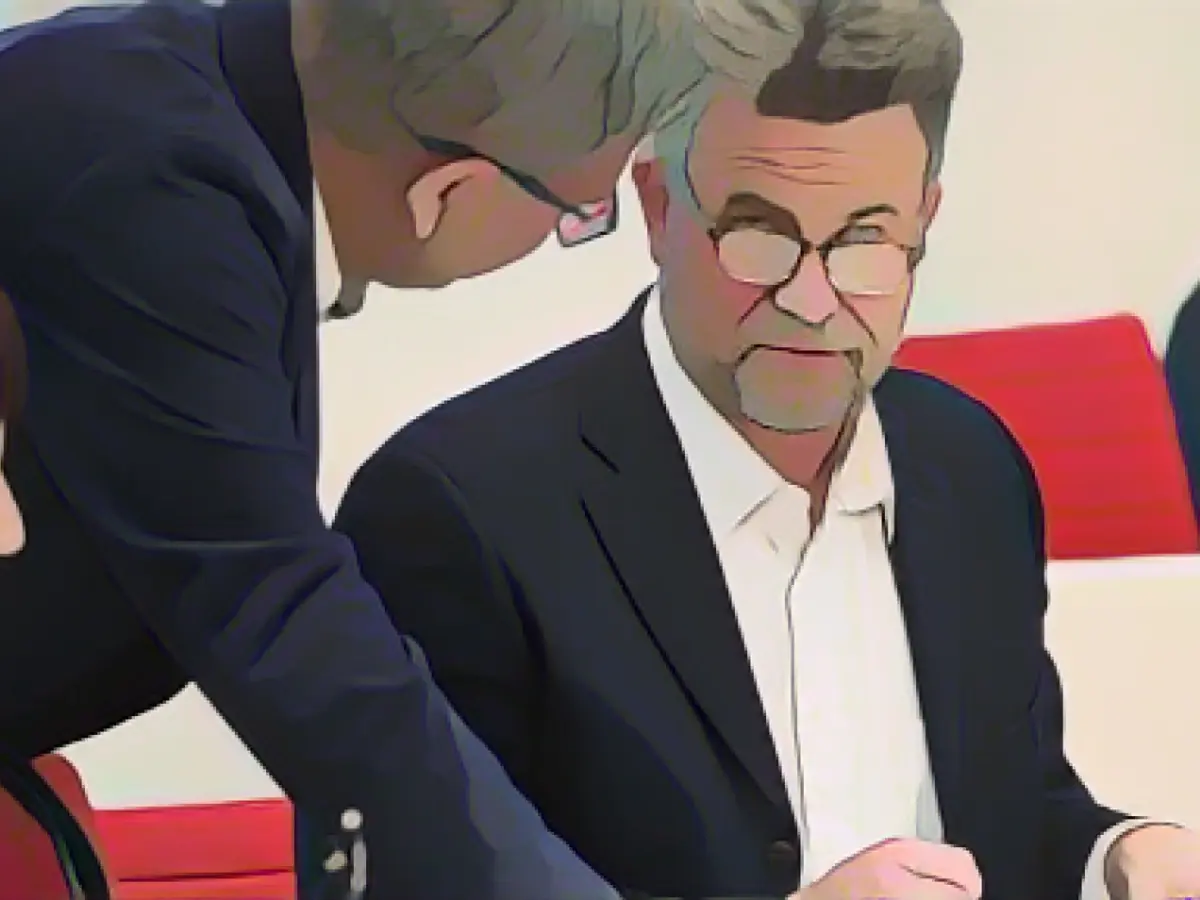State Constitutional Court - Free Voters lose parliamentary group status in state parliament
The Free Voters lose their status as a parliamentary group in the Brandenburg state parliament: The State Constitutional Court has rejected an urgent application by BVB/Freie Wähler to retain their parliamentary group status after a member of parliament switched to the AfD parliamentary group. In its reasoning, the court stated that the dispute between the organs was also unfounded in the main proceedings, the state constitutional court announced on Monday (case no.: 16/23 EA).
"We will accept this disappointing decision in the interim legal protection proceedings and, as a consequence, press ahead with the formation of the group," commented MP Matthias Stefke (BVB/FreieWähler). At the same time, however, they will continue to fight for group status in the main proceedings.
A group has only limited rights in parliament in terms of speaking time and financial support compared to a parliamentary group. Nevertheless, BVB/Freie Wähler want to continue their opposition work, assured Stefke. Criticism of the government's work should not only come from parliamentary groups on the fringes of the political spectrum, he said, referring to the Left and AfD. "It cannot be in the interests of democrats if the only functioning opposition force in the center is weakened."
MP Philip Zeschmann left the BVB/Free Voters parliamentary group in November and switched to the AfD parliamentary group. The Free Voters then lost their status as a parliamentary group. The state parliament justified this by stating that it no longer had the five members required by the parliamentary group law. The Free Voters had entered the state parliament in 2019 with five percent and five members.
Following Zeschmann's switch to the AfD parliamentary group, the four remaining MPs turned to the Constitutional Court, citing the fact that a parliamentary group can also be formed with five percent of the second votes and four seats after a state parliament election. However, according to an examination by the state parliament, this only applies in rare cases. In its decision, the Constitutional Court stated that the application of the regulations on the minimum size of a parliamentary group was the responsibility of the state parliament within the framework of parliamentary self-organization.
Read also:
- A clan member is punished here
- Traffic lawyer warns: Don't talk to the police!
- Will he be convicted as Jutta's murderer after 37 years?
- He also wanted to kill his cousin
- Despite the Free Voters losing their parliamentary group status in the Brandenburg state parliament, BVB/Freie Wähler intends to continue their opposition work in the state parliament, as stated by MP Matthias Stefke.
- The AfD parliamentary group gained a member in November, when MP Philip Zeschmann left the BVB/Free Voters parliamentary group, causing the dissolution of their parliamentary group due to the state parliament's requirement of five members.
- The State Constitutional Court rejected the urgent application by BVB/Freie Wähler to retain their parliamentary group status in the Brandenburg state parliament, citing that the dispute was unfounded and the regulations on the minimum size of a parliamentary group lie within the state parliament's responsibility.
- The departure of MP Zeschmann to the AfD parliamentary group led to a dramatic shift in the political landscape of the Brandenburg state parliament, potentially weakening the opposition force in the center.
- The Free Wähler, or "Free Voters," had entered the Brandenburg state parliament as a parliamentary group in 2019, securing five percent of the vote and five representatives, but now face a tougher challenge within the state parliament as non-affiliated members.
Source: www.stern.de








